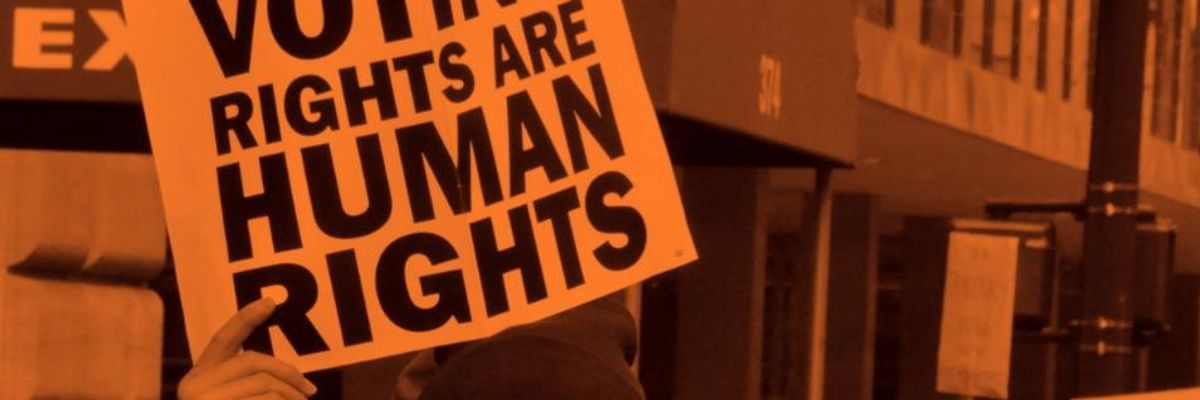We're in the thick of the second post-Citizens United presidential campaign, and it's already clear that allowing unlimited funds to influence political elections was a terrible idea.
Half of the funds supporting presidential candidates from both parties comes from a mere 158 families -- a miniscule percentage of America's 120 million households -- as documented by a recent New York Times investigation. Largely white, older, male, and Republican, they are also unrepresentative of what our multicultural society looks like.
As a result of this narrow group of donors controlling what's on the political agenda, America has a fundamentally undemocratic system in which working class people and people of color are left on the margins, silenced in a political debate, they can't gain access to -- because they don't have millions to share.
America has become a tyranny of the few, and Americans are fed up with the broken system. Last week, voters in Maine elected to increase funding from $2 million to $3 million for the Clean Elections Fund, which provides government grants to candidates who agree to limit their spending and private fundraising. It might be a long time before Citizens United is overturned. In the interim, it's important that other states introduce similar legislation challenging existing financing models.
The tyranny of the few is two-pronged, however. Not only are our elected leaders being held accountable to wealthy donors instead of the people of our nation, the least privileged of this nation are simultaneously facing strong barriers to voting.
Our antiquated voter registration system results in roughly 62 million eligible voters not registered, either because they never registered or their registration information is incorrect. In a 2008 Current Population Survey, blacks and Latinos cited "difficulties with the registration process" as their main reason for not registering to vote. Whites disproportionately reported not registering because they were "not interested in elections or politics." Barriers to voting registration are in many states especially well in place for people of color, workers and youth, who are targeted by voter suppression laws.
We could put an end to the error-ridden old-fashioned manual voter registration and step into the 21st century with automatic voter registration. Other states could follow the example set by California and Oregon, which are linking voter registration to the Department of Motor Vehicles. Through linking voter registration with public offices such as the DMV, revenue agencies, the Postal Service and others, the United States could secure over 56 million more voters, as a report from Center for Popular Democracy shows.
So to sum up: people of color and working class Americans aren't just unable to place millions of dollars with politicians who will take care of them in Congress, they aren't even able to vote for leaders who might serve their interests.
The outcome? Our America has become an oligarchy run by a tiny and overly privileged section of its population, whose lives and wishes for our nation are in stark opposition to the lives and dreams of the average American.
This is borne out in our legislation. Despite overwhelming public support for policies such as taxing those who earn more than $1 million a year, and laws that address inequality, workers' rights, and protection of the middle class, we see the footprints of corporate powers all over our legislation.
We need to act fast by passing laws that disrupt this undemocratic cycle. We must break Congress' dependency on big money and return the power to the people, but we can't only rely on our lawmakers to change our nation.
It will take a lot of work, but we can't allow for this undemocratic oligarchy to go on. Let's not leave the future of our country in the hands of the wealthiest, let's instead bring back democracy to our nation.

